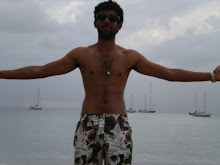
The UEFA Champions League (CL) football cup competition organised by UEFA since 1955 for the top football clubs in Europe.
Prior to 1992 the tournament was officially called the European Champion Clubs' Cup but was usually referred to as simply the European Cup or European Champions' Cup. The competition was initially a straight knockout competition open only to the champion club of each country.
The tournament consists of several stages. In the present format it begins in mid-July with three knockout qualifying rounds and a play-off round. The 10 surviving teams join 22 seeded teams in the group stage, in which there are eight groups consisting of four teams each. The eight group winners and eight runners-up enter the final knockout phase, which ends with the final match in May.
Since the tournament changed name and structure in 1992, no club has managed consecutive wins
(WIkipedia for the above)
The consecutive finalists so far have been AC Milan (1993(L),1994(W),1995(L) ); Ajax Amsterdam (1995 (W), 1996(L) ); Juventus (1996 (W), 1997(L), 1998(L) ); Valencia (2000 (L),2001(L); Manchester United ( 2008 (W); 2009 (L) ).
There are several possible reasons for this.
1. Pressure - For big clubs there is always pressure to win the CL. The holders however have extra pressure. The pressure to do it all again. The club mentality comes into this; the drive for another win or to be content with past achievements.
2. Mass Media - This isn't the 1960's and 1970's when teams regularly defended. What's different? The medium upon which you're reading this. The internet allows for mass archiving. The pre-match preparations never involve guesswork. Every thing a team did before is somewhere on the internet. Only completely new strategies can't be countered.
3. Time Factor - The time to develop a side is extensive. Several coaches come into another coach's intention of a side. Especially since many clubs have managers for one or two years. While the CL can be won by a coach who has implemented his preferred side in a club, the continuous upkeep of that said side sometimes needs a reconstruction year.Especially when playing at high levels. (It may be relevant that all team that reached consecutive finals had the same manager)
4. Playing Style - This is one usually pinpointed. Every team has their own particular style. When they win the CL it is because of this this. It does not necessarily have to be original, just effective. Milan of 2003 were not the first to use catenaccio & counterattack but it was effective that year. Barcelona in 2009 elevated the passing style they already had to another level.
The problem is that a style takes a long time to develop and to successfully assimilate into the team.
5.Champions scrutiny- All teams do research before matches. But every team analyzes the champions in the post season. Partly to see why they're successful, partly to figure out how to stop them in case they have to play them.CL winners are under far more scrutiny in the defending year than the previous.
6. The post season analysis - When a style becomes successful, due to mass media, it will immediately be broken down and analyzed. The post season is a long time in football and the teams can afford to have people studying the CL winner.
A style is easier to break down than to create. The previous style that benefited the winner will now be unsuccessful and the post season (while a long time) is not long enough to implement a new style.
7. Forcing the issue - If a team persists in playing the same style from the previous season it will inevitably be nullified (Barcelona 2009,2010. Bayern Munich 2001, 2002). If they try to adopt a completely new style it will fail because of time factor limitations in implementing such style (Real Madrid 2002,2003.). Minor adaptations are the only possibility & this is far more difficult to predict the success of.
8. The Exceptional Style - This is directed at Barcelona. The style they played for 2009 was their own style.It was very difficult to defend against. Even through several analysis, the breakdown of the style showed almost no method to nullify them. However they did not make the 2010 final. The style they played was the same.
If such an exceptional style could be nullified, then it stands to reason that persisting in the same method year after year will be ultimately unsuccessful. The fact that when the style was changed to the long ball method in the second semi-final caused problems for Inter (since they obviously were unprepared for Barcelona using this method) shows the necessity of changing the style. The inability of the Barcelona players to successfully adapt to the new style shows the further time factor importance.
9.Time between semis & final - This is usually around three weeks. Usually most teams in the final have already won their league long before this. If the defending champion reaches the final , the other team has three weeks to study everything they did this year and last year. Sometimes the allure of returning to the successful method can be too much.
10. Mental fatigue - Reaching the final twice in a row means that the team has played more matches than any other team. Coupled with a tight league race (Juventus 1997) and a long domestic cup run, the mental pressure on players is high.
Each of these reasons can be broken down individually. Singly they are not the reason for no defense of the trophy.It is possible however, that a combination of some or all of these factors result in there being no successful winner of the CL in consecutive seasons.

Comments
Post a Comment